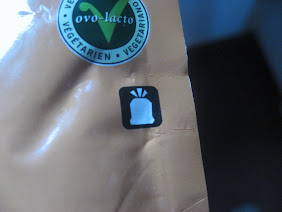
As a good Italian girl I had to begin by writing a post on an attractive topic for people who are fond of the Mediterranean diet: pasta, popular in Europe and the world for its nutrients, quality and its versatility to be presented in a thousand ways.
However, those who are fond of pasta know that it is almost impossible to buy in bulk, with the exception of - at least in Italy - fresh and stuffed pasta. In supermarkets, however, it is only packaged in bags made of plastic, usually polypropylene, a material generally recyclable but a synthetic derivative of oil, a fossil resource that will run out.
Fortunately there is still a brand of pasta sold in cartons. That’s Barilla, one of the most famous brands of pasta in Italy and abroad. The cardboard is a renewable and more sustainable material, being fully recyclable, often more easily than plastics.
Barilla, in fact, has always emphasised an environmentally sensitive approach to its production:
"...For Barilla, ecology means investing in total quality and cost reduction, beginning with that of the packaging..."
The company has recently reduced weight and volume of packaging by reducing the use of corrugated cardboard and plastic film and using recyclable paper.
Barilla is constantly improving its manufacturing plants, which are already considered low-impact regarding the environment. The plants have been equipped with sophisticated sewage purification facilities. Heat recovery systems were also installed, recycling heat produced by the steam in the process of drying of pasta.”*
In choosing the material for pasta packaging, the use of heterogeneous materials has been reduced against more homogeneous ones, making it lighter and easier for disposal after use. The plastic ‘window’, was removed from its box design, not only using a single material, but eliminating a working phase for packaging, with the related environmental impacts in terms of less energy, reduced waste of material and no plastic. Elements that were not 'eco-compatible, such as as inks were eliminated too.
The size of the boxes has been reduced, minimizing gaps in packaging. Compared to the old type of box, it has been achieved a 6-8% savings on packaging material, also guaranteeing the optimization of storage units and reducing the number of resources needed for transportation.
In February 2000 this earned Barilla, the 1st prize for the reduction of packaging for distribution, awarded by COMIECO (the National Consortium of Recovery and Recycling of Cellulose-Based Packaging).**
In 2007, even with COMIECO, Barilla has launched a collaboration to promote better recycling of cardboard packaging, so that today it is one of the few brands that exhibits clear recycling symbols on packaging.

In Italy, we welcome the efforts of this great pasta manufacturer, and we hope that further steps towards eco-sustainability can be made, perhaps with the launch of outlets for bulk products and with the supply of organic flour to ensure a product of total goodness, health and minimal environmental impact.
References:
*From a document of University of Pisa, Department of Agricultural Economics of Farm, Forest and Territory)
** Barilla document in Day of the Food Packaging and the Environment - October Cibustech 2005)








